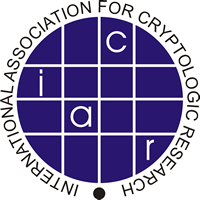59
We introduce Zero-Knowledge Location Privacy (ZKLP), enabling users to prove to third parties that they are within a specified geographical region while not disclosing their exact location. ZKLP supports varying levels of granularity, allowing for customization depending on the use case. To realize ZKLP, we introduce the first set of Zero-Knowledge Proof (ZKP) circuits that are fully compliant to the IEEE 754 standard for floating-point arithmetic.
Our results demonstrate that our floating point circuits amortize efficiently, requiring only $64$ constraints per multiplication for $2^{15}$ single-precision floating-point multiplications. We utilize our floating point implementation to realize the ZKLP paradigm. In comparison to a baseline, we find that our optimized implementation has $15.9 \times$ less constraints utilizing single precision floating-point values, and $12.2 \times$ less constraints when utilizing double precision floating-point values. We demonstrate the practicability of ZKLP by building a protocol for privacy preserving peer-to-peer proximity testing - Alice can test if she is close to Bob by receiving a single message, without either party revealing any other information about their location. In such a configuration, Bob can create a proof of (non-)proximity in $0.26 s$, whereas Alice can verify her distance to about $470$ peers per second.



I think it is spoof-resistant from the sound of it? You giving a valid proof-of-region via one of their circuit designs provides proof of your region but does not give your exact location, from the sounds of it.
I’ll get back to you after I’ve read through it.
Yes, looks like the actual advantage (or disadvantage , depending on who you are) is ensuring that you don’t send a false location to a third party.